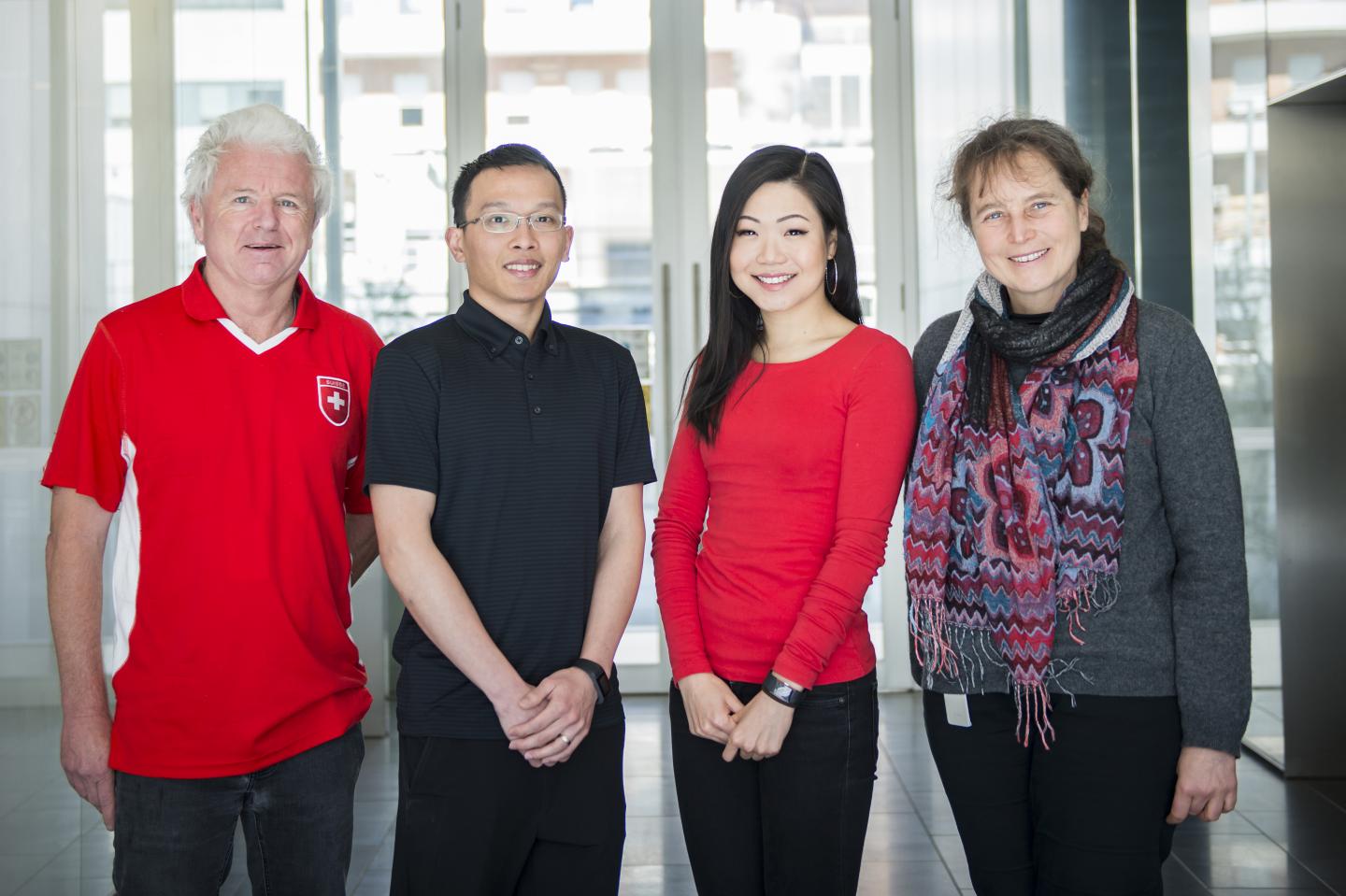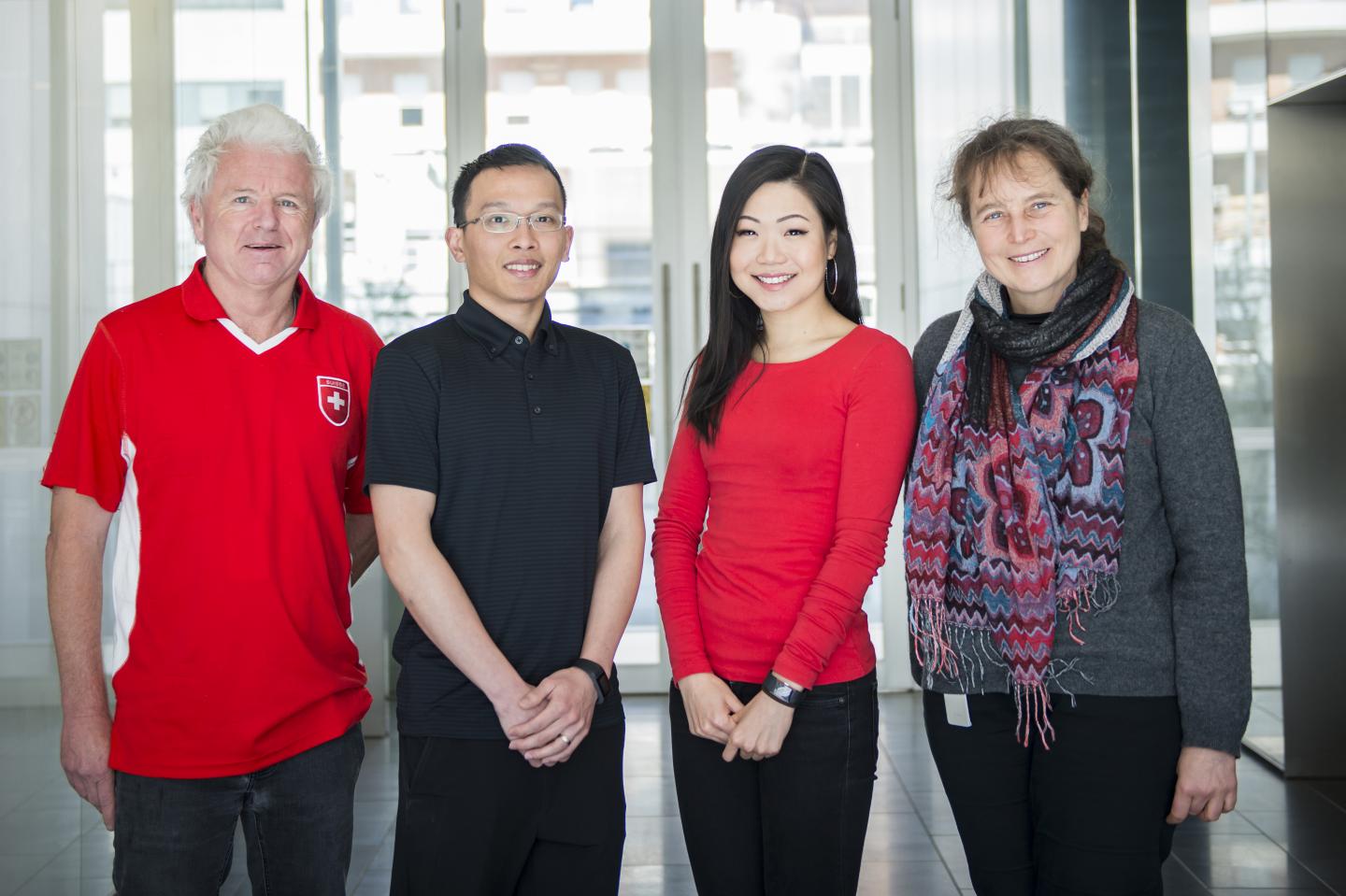
Credit: Walter and Eliza Hall Institute of Medical Research
Walter and Eliza Hall Institute researchers have made a surprise discovery about how subtle changes in the way cell survival is regulated during embryonic development can have drastic health implications.
The study, published today in the journal Cell Reports, suggests that it is important to strike a healthy balance between too little cell death, which can cause cancer, and too much cell death, which can lead to developmental abnormalities.
The research was led by Dr Stephanie Grabow, Dr Andrew Kueh, Dr Francine Ke, Professor Andreas Strasser and Associate Professor Anne Voss and performed in collaboration with researchers at Monash University and the United States-based biotechnology company Genentech.
At a glance
- Researchers have found there is a fine balance between cell survival and cell death during development.
- Subtle changes in the proteins that regulate cell death can cause severe defects in face and brain development.
- The finding was a surprise outcome of cancer research and led to an exciting collaboration between cancer researchers and developmental biologists.
A perfect dose of cell death
Programmed cell death, also known as apoptosis, is a process that removes unwanted cells from the body. Apoptosis is crucial for normal development, for example removing the webbing between our fingers.
In this new study, researchers discovered that subtle changes in the regulation of apoptosis can have drastic consequences on development, particularly of the face and brain.
"There is a remarkably tight balance between the 'pro-survival' and 'pro-death' proteins that regulate cell death during development," Dr Kueh said. "We found that reducing certain regulators by only 50 per cent, which is relatively subtle for these types of experiments, can cause craniofacial abnormalities such as eye and palate defects."
Dr Kueh said altered levels of apoptotic regulators could be due to differences in the genes themselves, but could possibly also be affected by environmental factors such as nutritional deficiencies or infections.
Striking a healthy balance
Associate Professor Voss said the fine balance between apoptotic regulators may have evolved as a protection against cancer.
"The tight balance we see between apoptotic regulators – with only just enough of the pro-survival proteins to keep cells alive – makes it relatively easy to trigger cell death when cells are damaged or no longer needed.
"The 'clearing out' of damaged cells helps to safeguard tissues against cancer formation. This is important as cells that grow rapidly – such as those present during development – are intrinsically at risk of becoming cancerous.
"However, if the amount of pro-survival proteins dips too low during development, there may not be enough cells produced for structures such as the face and brain to form properly, resulting in devastating birth defects," Associate Professor Voss said.
Collaboration accelerates research
Professor Strasser said the findings exemplified the powerful collaborative nature of research at the Institute.
"Our discovery of the fine balance between apoptotic regulators during development was a complete surprise.
"We were actually studying the role of two pro-survival proteins, called MCL-1 and BCL-XL, in blood cancer, not embryonic development, so it was a total shock when we halved the amount of both proteins and saw dramatic developmental abnormalities," he said.
"I immediately contacted my colleague and developmental biology expert Associate Professor Voss to examine precisely what was going wrong.
"This research is a perfect example of how collaboration accelerates research discoveries," Professor Strasser said.
###
The research was supported by Cancer Council of Victoria, Lady Tata Memorial Trust, Leukaemia Foundation Australia, Australian Research Council, National Health and Medical Research Council, Leukemia and Lymphoma Society of America, University of Melbourne, Cancer Therapeutics CRC, Australian Government and the Victorian State Government.
Media Contact
Arunee Wilson
[email protected]
61-475-751-811
@WEHI_research
Related Journal Article
http://dx.doi.org/10.1016/j.celrep.2018.08.048





